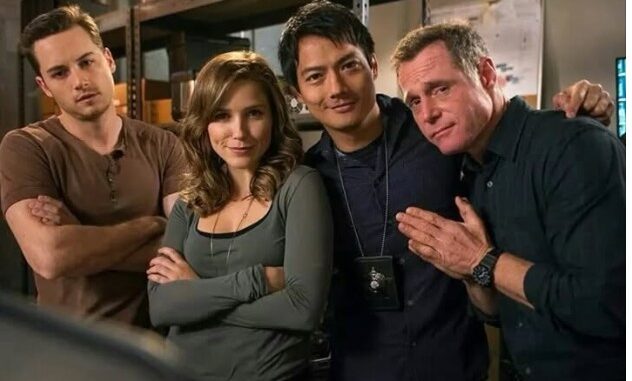
One of Chicago P.D.’s strongest aspects has always been its complex characters. From Hank Voight’s morally ambiguous leadership to Kevin Atwater’s internal struggles as a Black officer navigating the complexities of law enforcement, these characters have depth that could fuel engaging, long-term narratives. However, instead of exploring these arcs in meaningful ways, the show often resorts to crime-of-the-week plots that overshadow character growth.
Kim Burgess, for instance, has endured traumatic experiences, from a brutal assault to being shot, yet her recovery and emotional journey are often rushed or inconsistently addressed. Fans have been yearning for a more nuanced portrayal of how these events shape her, but the show keeps pushing forward without fully exploring her evolution.
Similarly, Atwater, who has long been one of the most morally compelling characters, is frequently underutilized. His storylines, particularly those addressing racial tensions and systemic issues within the police force, have been some of the show’s best. Yet, instead of continuing to explore these themes, the show often leaves them unresolved, moving on to the next case.
A Lack of Team Dynamics
Another major issue is how Chicago P.D. continues to underplay the strength of its ensemble cast. Earlier seasons thrived on the dynamic relationships within Intelligence—whether it was the mentor-student bond between Voight and his team, the tight-knit partnership between Ruzek and Atwater, or the sisterhood between Burgess and Upton. Recent episodes, however, have failed to balance these relationships, often isolating characters in solo missions rather than showing how they function as a team.
For a show that once prided itself on the camaraderie and brotherhood of the Intelligence Unit, it feels like the writers have drifted away from what made Chicago P.D. special. Fans miss the banter, the shared moments of vulnerability, and the feeling that these officers are more than just co-workers—they’re family.
Repetitive Storylines Weigh the Show Down
Instead of capitalizing on fresh, innovative storytelling, Chicago P.D. has fallen into the trap of recycling similar narratives. While action-packed cases are essential to a procedural drama, they shouldn’t come at the expense of originality.
Take Voight’s story arc, for example. His struggle with bending the law to achieve justice was once a thrilling moral dilemma, but after 12 seasons, it feels like the show is rehashing the same conflicts without giving him real growth. The show has had multiple chances to reinvent Voight’s leadership—perhaps by making him face true consequences or forcing him to change his approach—but it consistently plays it safe, keeping him in the same cycle.
Similarly, Burzek (the on-and-off relationship between Burgess and Ruzek) has been dragged out to the point of exhaustion. Their connection has undeniable chemistry, yet the constant breakups, makeups, and near-misses leave fans frustrated rather than invested. Instead of moving their relationship forward in a meaningful way, the show continues to reset them every season.
What Chicago P.D. Needs to Fix
Despite these missteps, Chicago P.D. still has the potential to reclaim its strengths. Here’s how:
-
Focus on Meaningful Character Arcs – Instead of rushing through character-driven plots, the show should take its time exploring the emotional and psychological impact of major events on its leads.
-
Reignite Team Chemistry – The heart of Chicago P.D. has always been its strong ensemble. Bringing back more scenes that showcase teamwork and personal connections would restore the magic of earlier seasons.
-
Take Risks with Storytelling – The show needs to move beyond its comfort zone. Whether it’s evolving Voight’s leadership, giving Atwater a long-overdue prominent arc, or allowing Burgess and Ruzek real progress in their relationship, Chicago P.D. should embrace change rather than repeating the past.
-
Balance Action with Emotional Depth – While the adrenaline-pumping cases are part of what makes the show thrilling, they shouldn’t come at the cost of compelling, character-driven moments.
Final Thoughts
Chicago P.D. is still a powerhouse in the One Chicago franchise, but its reluctance to fully utilize its strongest elements—character depth, team dynamics, and fresh storytelling—risks making it feel stagnant. If the show wants to maintain its legacy and keep fans engaged, it’s time to lean into what made it great in the first place. Until then, viewers will keep tuning in, hoping for the moment Chicago P.D. remembers its own strengths.
